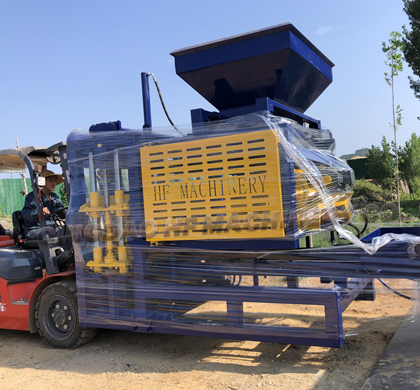Permeable pavements are constructed from either a porous substance that allows water to pass through or nonporous blocks that are spaced out so that water flows through the gaps. Permeable paving may also comprise different surfacing techniques for parking areas, roads, and pedestrian paths. Permeable pavements can comprise pervious concrete or pavers, porous asphalt, and interlocking pavements. In contrast to traditional impervious paving materials, such as concrete or asphalt, permeable pavement systems permit stormwater to seep and percolate through the pavement before settling through the layer of aggregate or soil beneath. Apart from decreasing water runoff on the surface, permeable paving materials can also trap suspended solids which can filter pollutants out of stormwater.

Permeable solutions are constructed using porous asphalt as well as concrete surfaces, including concrete pavements (permeable interlocking concrete pavement systems (PICP)) or polymer-based grass geocells, grids, and pavers. Porous pavements like previous cement and pervious asphalt are more suitable for urban areas with a lot of vehicle traffic, whereas geocells and grids made of concrete and geocells are more suitable for areas with light traffic pathways for cyclists and pedestrians as well as overflow parking areas.

Pervious concrete pavers enable water to seep and penetrate through the pavers to the layers of aggregate or the soil beneath. Impervious concrete pavers that have plenty of void space between them function exactly the same way as pervious concrete pavers, as they permit stormwater to flow into the gaps between each paver, which are filled with coarse gravel or vegetation as well as a stone or soil base layer that can be used for infiltration and filtering. Polymer grass grids or cellular paver systems offer loads-bearing reinforcement on the unpaved surface made of turf or gravel.

In the modern age of information, the quest for high-quality industrial machinery often begins with a simple online search. This was the case for a prominent Central America construction firm looking to enhance their production capabilities with a state-o

HF Machinery CO., LTD had the pleasure of hosting a delegation of esteemed clients from Nigeria at our block machine manufacturing facility. This visit marked a significant milestone in fostering stronger business ties and showcasing the advanced capabili

HF Machinery Co., Ltd has once again proven its commitment to customer satisfaction by successfully producing and delivering a block machine to a client in the Philippines within a tight deadline. This accomplishment highlights our dedication to excellenc

Whether for inquiries for inspections and
maintenance, for individual plant optimizations or
extensions, or spare and wear parts.

Our after-sales service is at your disposal for all
questions

Gemini Tower, Block B, Chunyang Road, Chengyang District, Qingdao, China
Show on the Map
We will contact you within 24 hours.